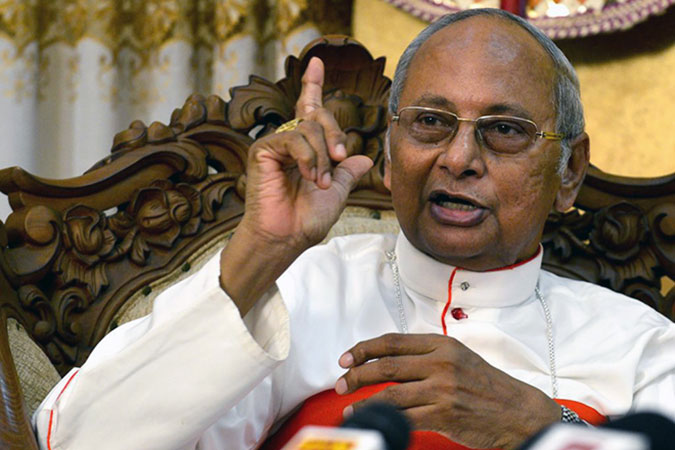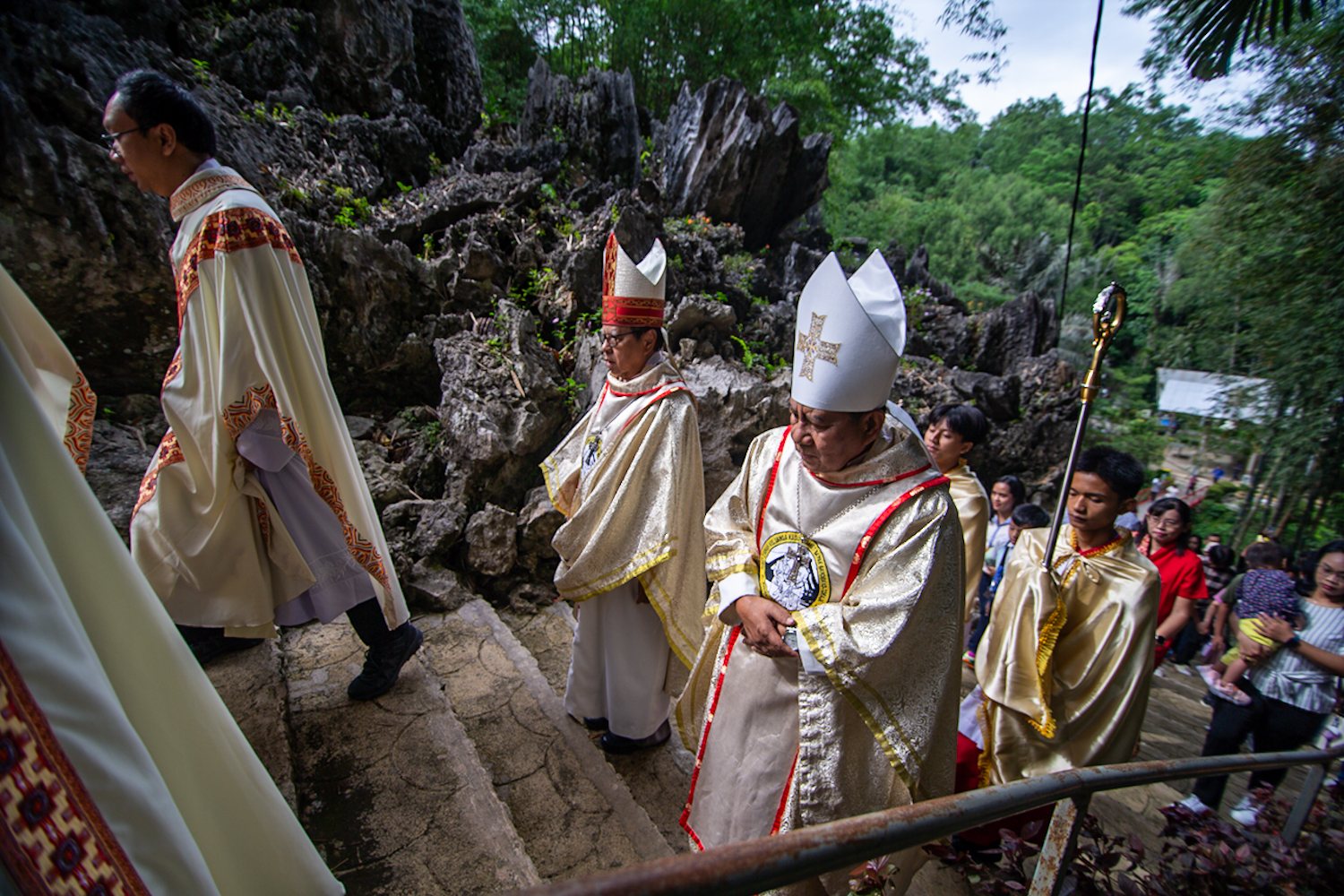Cardinal Malcolm Ranjith, Archbishop of Colombo
Joaquim Magalhães de Castro
Faced with continued political, social and economic problems, and to keep popular discontent under control, Sri Lankan politicians intend to introduce stricter social control measures. Among them, the limitation of the right to indignation. In other words, if such measures are taken forward, criticism and protests will be prohibited, thus guaranteeing the maintenance of the current status, simultaneously exonerating the mismanagement by current politicians and rulers.
Among those critical of the announced measure is the Archbishop of Colombo, Cardinal Malcolm Ranjith, traditionally an uncomfortable voice within local society. “We face serious difficulties when it comes to the normal exercise of democracy,” he told Fides Agency on the occasion of the ad limina visit of the Sri Lankan bishops to the Vatican. Together with other civil society groups, the Catholic Church in that country is challenging the so-called ‘online security bill’ presented in Parliament with an appeal to the Supreme Court. “This bill is censorious and restricts freedom of expression and the fundamental rights guaranteed by the Constitution, intervening in particular on social media and punishing violations with prison sentences or fines,” added Cardinal Malcolm Ranjith.
Another worrying aspect addressed by the Archbishop of Colombo is the so-called “anti-terrorism law” which grants broad powers to “prosecute those suspected of subversive activities”. Now, the problem is that this vague definition of what is or is not a crime allows the law to act in a completely arbitrary way, allowing politicians to easily get rid of their opponents or even inconvenient citizens. In fact, a real danger for the judiciary and democracy.
Cardinal Malcolm Ranjith also reminded that the chapter on the victims of the Easter 2019 terrorist attacks remains open, ensuring that the Catholic Church – which does not accept the version of events presented by the government – will not give up searching for the truth about this tragedy and will always demand justice for the victims. And his thoughts are not just with Catholics, but with the entire nation. “People are suffering, the social and economic crisis is strangling families. A third of the population only eats once a day and suffers from malnutrition. Catholic communities do everything they can to support families most in need,” said Cardinal Malcom Ranjith.
The attacks on Easter Sunday, April 21, 2019, killed 269 people, including 42 foreigners from 14 countries, and were carried out through simultaneous suicide attacks, hitting three churches – two Catholic and one Protestant – and three tourist hotels during the celebrations of Easter. Under-Secretary of State for Defense Pramitha Tennakoon reported in parliament that the government had decided to appoint a Commission of Inquiry to investigate allegations contained in a documentary broadcast on British television channel Channel 4.
In the documentary, a man claims to have organized a meeting between a local group inspired by the Islamic State (the National Thowheed Jamath) and a senior official from the State secret services: the objective was allegedly to devise a plan to generate a climate of insecurity in Sri Lanka and thus allow Gotabaya Rajapaksa to win that year’s presidential elections. What is certain is that, after the social and political chaos created by the 2019 attacks, Gotabaya Rajapaksa effectively came to power until he was forced to resign in mid-2022, following massive social protests caused by the serious economic crisis that the country was going through.
The Catholic Church of Sri Lanka – although with some skepticism – called for the allegations to be verified and the ongoing investigation continued. Cardinal Malcolm Ranjith recalls that civil authorities have so far failed to adequately monitor and support previous parliamentary and presidential commissions created to investigate the attacks. The Catholic Church of Sri Lanka, which was badly hit by these attacks, “sincerely hopes that the President and Government of Sri Lanka will fulfill all calls for justice” because “unless a transparent and honest investigation is launched, there will be no truth and justice for the victims”.
Although the truth about the events of 2019 is one of the issues that has never disappeared from the social and political agenda, the main issue occupying public life today is the slow process of overcoming the economic crisis in Sri Lanka during last year. According to a recent study by the United Nations Development Program (UNDP), more than half of the population is “at risk in various ways”. The study for the period 2022-2023 concluded that 55.7 per percent of Sri Lanka’s population, or more than 12 million people, are in extremely fragile conditions and vulnerable, with peaks of real deprivation.
Many families reduced their food consumption and took their children out of school to cope with the high cost of living. The UNDP report concludes that 82 percent of at-risk households live in rural areas and calls for more political attention to people living in these areas. Furthermore, the study finds that a third of the population went into debt to satisfy basic needs such as food, medical care and education.


 Follow
Follow


